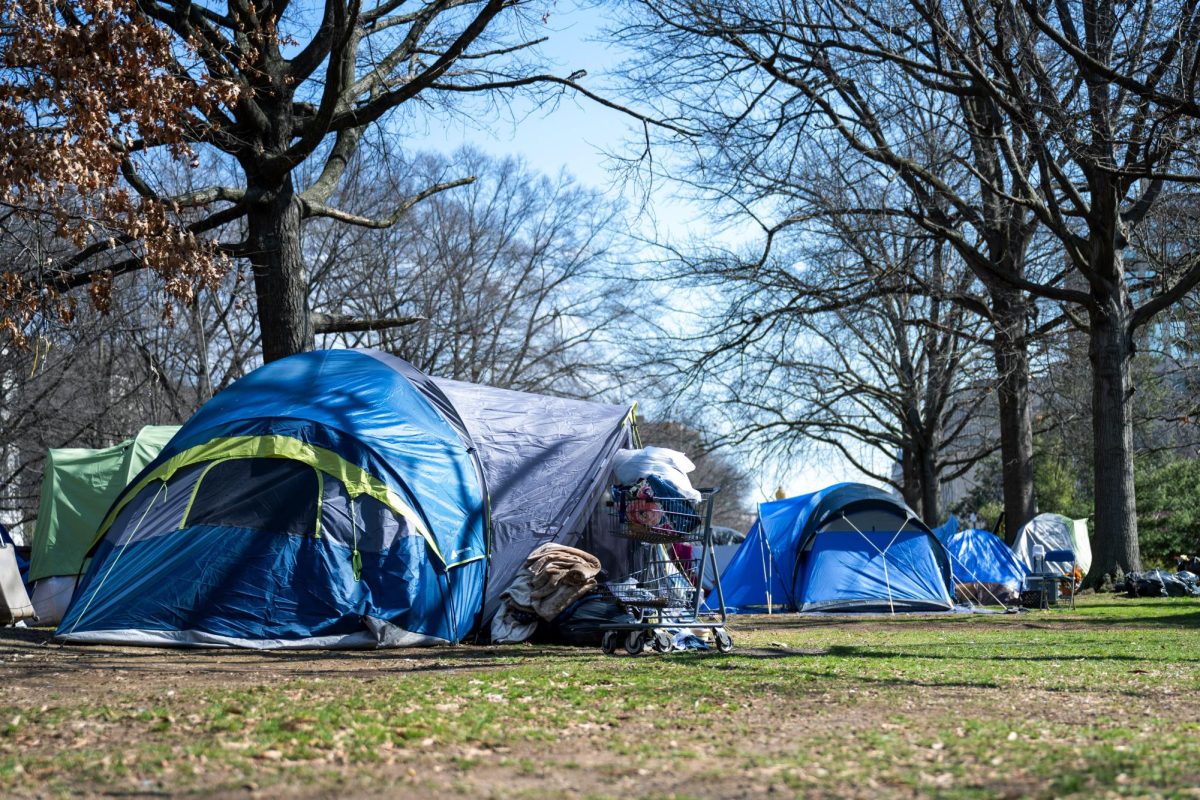GW’s Title IX office will update its policies this summer to comply with the Department of Education’s new Title IX regulations published earlier this month.
The new regulations expand the definition of what qualifies as sexual harassment, simplify the investigation process for Title IX violations and include provisions for discrimination based on gender identity, sexual orientation and pregnancy status. Asha Reynolds, the interim director and GW Title IX coordinator, said the University will review the new regulations and draft policies over the summer to comply with them.
Reynolds said the new rules will go into effect Aug. 1.
“We will communicate any updates closer to that date,” Reynolds said in an email.
Reynolds said the new rule “expands protections” against discrimination targeted at the LGBTQ+ community, or based on pregnancy and pregnancy-related conditions. The rules clarify that sex-based discrimination, which Title IX prohibits, includes discrimination against those identifying with any of these groups.
Congress enacted Title IX of the Education Amendments in 1972, which prohibits discrimination in education on the basis of sex. The Department of Health, Education and Welfare — now the Department of Education — issued final regulations on how universities should implement the law in 1975.
During former President Barack Obama’s administration, the Department of Education issued several unofficial federal guidelines for universities’ enforcement of Title IX rules. Former President Donald Trump’s administration published amendments to official regulations for the first time in 2020, and the regulations passed last week reflect President Joe Biden’s amendments to the 2020 rule.
Title IX experts said the 2024 regulations ease the process of addressing sexual harassment for universities by broadening the qualification criteria.
S. Daniel Carter, the president of Safety Advisors for Educational Campuses, LLC — an organization that assists universities in complying with federal regulations like Title IX — said the definition of hostile environment harassment is the main difference between the 2020 regulations and the ones issued last week.
He said under the 2020 ruling, an incident needed to be “severe and pervasive” in order to count as hostile environment harassment, which made it hard for university officials to address single instances of violence. The 2024 regulations changed the definition back to “severe or pervasive,” as it was before the 2020 ruling.
“The 2024 rule is designed to make it easier for schools to respond to a wider range of hostile environment harassment by expanding the definition and by giving them more tools to respond,” Carter said.
Carter said the 2024 ruling also allows universities to use the “single investigator model” where they assign a single official to investigate an incident, determine the consequences and supervise any proceedings related to the incident. Carter said he would not recommend using the model because it puts too much responsibility on one person.
“Everyone needs to be accountable to somebody and a true single investigator, where there’s basically supervisor, decision-maker and investigator as one doesn’t afford that,” Carter said.
Carter said changing regulations four years after the 2020 regulations has made it difficult for organizations and universities to become familiar with Title IX policy. He said there is a need for stability in policy, and the government should aim to create lasting regulations that give a chance to work over a long period of time instead of making changes based on evolving political agendas.
“We really hope that the department will stabilize the expectations under this law,” Carter said. “We’re having a pingpong effect, basically, where the direction on implementing the law is going from one end to the other and back repeatedly and that is causing a lot of difficulty, a lot of confusion, and it is not the best way to implement a law.”
R. Shep Melnick, a professor of American politics at Boston College, said the differences between the 2020 and 2024 regulations reflect the tension between the ease of filing complaints with Title IX and the retention of the rights of those accused of Title IX violations. He said the 2024 regulations focus more on easing the complaint filing process complaints by not requiring schools to conduct live hearings with the accused, which was required under the 2020 rule.
“There’s always this trade-off between encouraging more complaints, making it easier to prosecute the complaints and preserving the due process rights of the people that were accused,” Melnick said. “The Trump administration thought it was important to build up the due process rights, and the Biden administration have been very critical of that and they want to make it easier for people to bring and to successfully prosecute these complaints.”
Melnick said the new rule explicitly prohibits discrimination on the basis of gender identity, which was not included in the 2020 rule. He said this change could have implications for transgender athletes in sports since the new rule protects against gender discrimination, not just discrimination on the basis of sex.
“The implication is that gender identity needs to be respected,” Melnick said. “Even in those circumstances where there are segregated facilities that are segregated by sex.”





